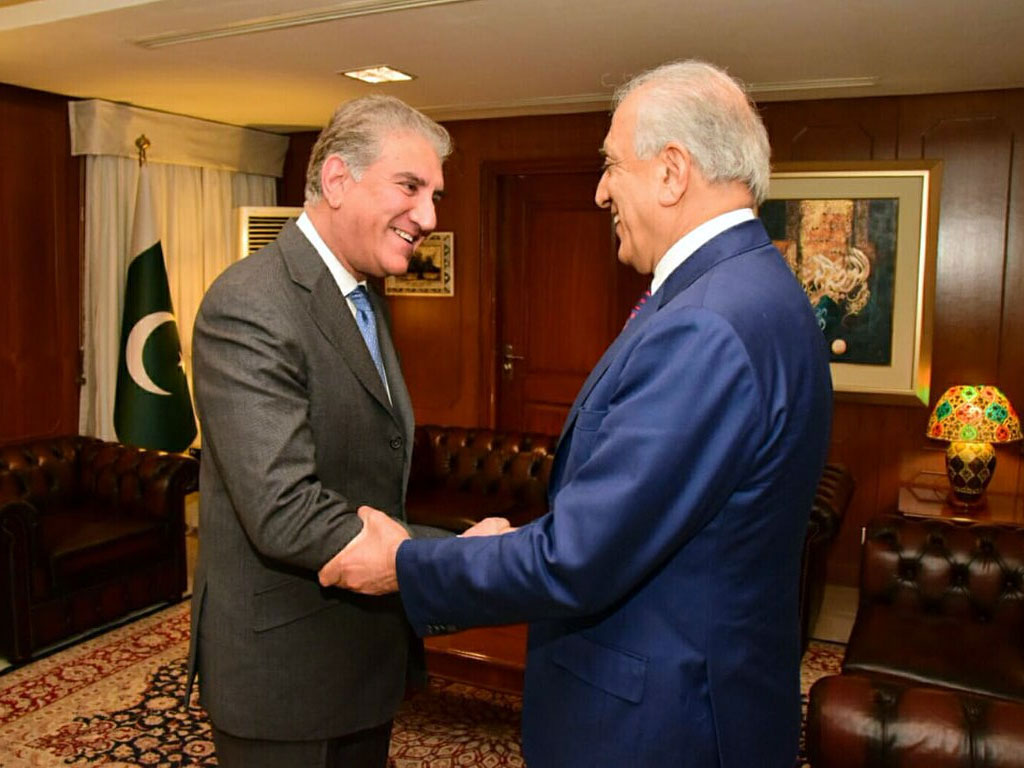Differences persist?

US Special Envoy for Reconciliation in Afghanistan Ambassador Zalmay Khalilzad returned to Islamabad for meetings with Foreign Minister Shah Mahmood Qureshi, outgoing Foreign Secretary Tehmina Janjua, and the ubiquitous call on CoAS General Qamar Javed Bajwa. Ostensibly, according to reports, Zalmay Khalilzad was visiting Pakistan as part of his latest regional tour, having spent some days in Kabul before arriving in Islamabad. He has been shuttling between regional capitals for months now, including a marathon 16-day negotiations session with the Afghan Taliban in Doha, Qatar, recently. Although the Doha talks produced an agreement between the two sides for withdrawal of all foreign troops (mostly US) and guarantees that Afghan soil would never again be allowed to be used against the US and its allies, a la 9/11, the 'new' plan has yet to be explained. The only new thing to be gleaned from recent days is the adoption by the US of the 'Moscow Format'. This was a meeting arranged by Russia between the Taliban and a delegation of Afghan opposition politicians and civil society groups in Moscow, but which excluded the Afghan President Ashraf Ghani's government, with which the Taliban stubbornly refuse to meet since they have declared it a US puppet. This exclusion has in turn raised sensitivities in Kabul to the point where there was a sharp reaction from the Ghani government to Prime Minister Imran Khan's remarks about the need for an interim government in Afghanistan to make possible peace and the holding of impartial elections, a la the system we have adopted some years ago. The spat with Kabul threatened to spin out of control, particularly when the US Ambassador in Kabul reminded Imran Khan of the norms of diplomacy and was trolled by our irrepressible Minister for Human Rights Shireen Mazari. In the light of this recent controversy, PM Imran Khan should perhaps have taken note of Kabul's sensitivities and the delicate point at which the talks process on Afghanistan is poised to refrain from bringing up the suggestion of an impartial interim government in Afghanistan once again at a rally in Landi Kotal on April 5, 2019. The PM's intent may have been to clarify and justify his earlier remarks, but the net result could well be more friction with the increasingly insecure Afghan government.
While both Zalmay Khalilzad and his Pakistani interlocutors were at pains to present an image of complete agreement and bonhomie, it is difficult to resist the notion that in fact the diplomatese hides deep differences. For one, the aims of the two sides vis-à-vis Afghanistan are clearly dissimilar. While Washington wants to withdraw from an increasingly unwinnable war with as much face saving as possible, Islamabad does not appear to have changed its spots vis-à-vis support for the Taliban. This is perhaps what Zalmay Khalilzad was referring to when he stated in Kabul that US-Pakistan relations could not improve unless Islamabad changes its Afghan policy. The idea that the wolf (the Taliban) and the lamb (the Afghan government) could somehow be persuaded to drink from the same stream is overlaid with so much suspicion and uncertainty that very different analyses of the likely future scenario have started making an appearance. For example, Edward Luce, a famous author and analyst of conflicts in a piece in The Financial Times has drawn a comparison between what happened in 1975 when the US withdrew from Vietnam and what may happen in Afghanistan when a similar withdrawal transpires. The then US Secretary of State, Dr Henry Kissinger, had defined 'face saving' for the defeated US as a 'decent' interval between the US withdrawal and the collapse of Washington's puppet regime in South Vietnam. As it transpired however, the expected collapse happened as the last US helicopters were leaving Saigon. Whether a similar scenario can be expected in Afghanistan cannot be predicted with certainty, but there is enough suspicion regarding the Taliban's intentions when the prize they have fought so hard and so long to attain is tantalisingly close and within their grasp. The repeated mantra of peace and reconciliation in Afghanistan may not survive beyond the last departing US aircraft.
























Comments
Comments are closed.